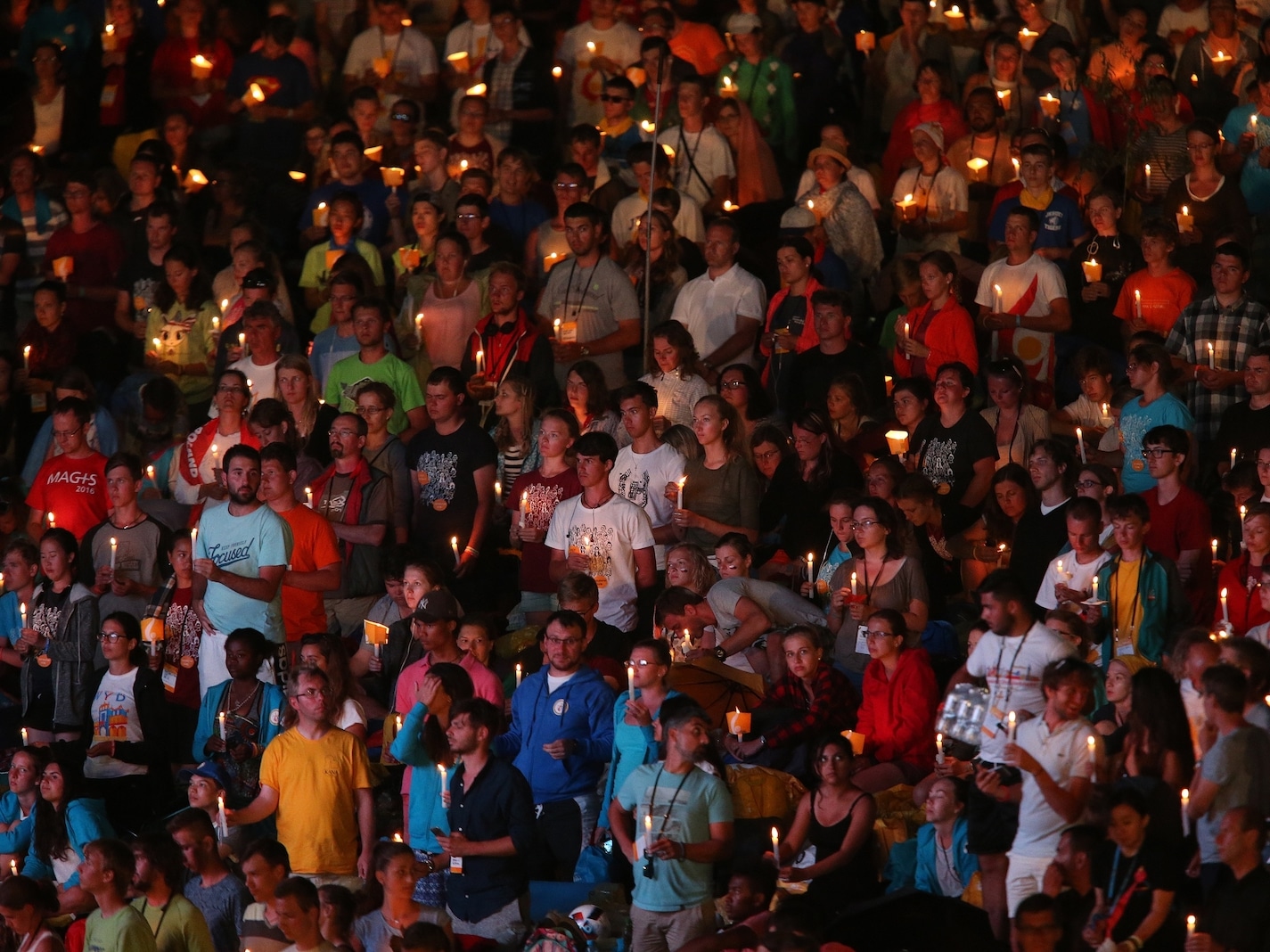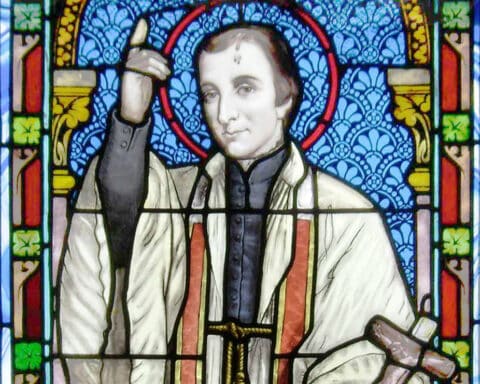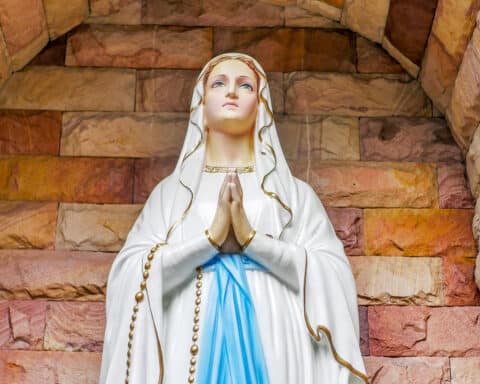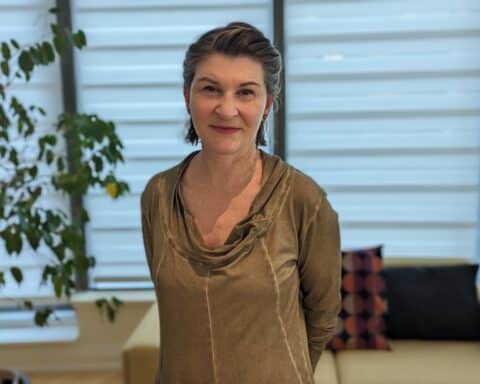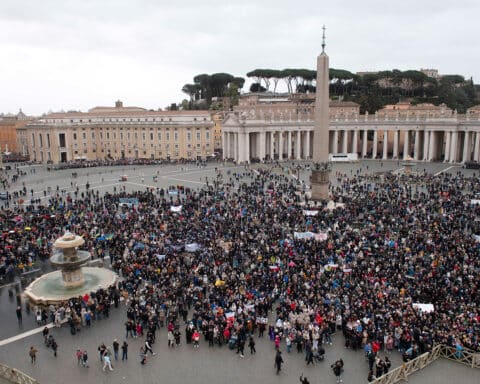When I was 40, I went to World Youth Day for the first time. It was in Poland with Pope Francis in 2016. I was covering it. But it was also, no question about it, a pilgrimage of renewal for me. It was happening at the same time as the presidential political conventions in the United States. In other years, I’d be at both conventions. I was grateful not to be.
I remember a mother of one of the World Youth Day pilgrims coming up to me and telling me how hopeful she was because we were surrounded by young people who loved Jesus Christ. I moderated a panel on religious freedom in the Tauron Arena in Krakow. Upwards of 20,000 young people gave a standing ovation to Archbishop Bashar Warda of Irbil, Iraq. They understood that his love for Jesus Christ could make him a martyr someday. That meant something to them. It was important. I don’t know that they were prepared to be martyrs, but I also know, from priests and laypeople in Iraq, that God gives you the grace for what he asks of you.
Witnesses to love and mercy
Almost every time I took an Uber during those three weeks in Poland, the driver spoke English and asked me about the U.S. presidential election. It was Hillary Clinton and Donald Trump, and they wanted to know why Americans couldn’t come up with other alternatives. I understood their quandary. But I often changed the conversation to the amazing revival I was witnessing at World Youth Day — a gift Pope St. John Paul II gave the Church.
This August, World Youth Day will be in Portugal. Some controversial things have been said about it, downplaying the importance of young people’s conversion to Christ. We all need conversion to Christ. My one WYD experience was about conversion to Christ. He needs to be our priority. We need to be his witnesses in the world with our love and our sacrifice. There is so much evil and compromise in the world that we don’t even always realize how much we need to plead for God’s mercy and make reparation. That’s part of the reality of our culture a year after Roe v. Wade was overturned. So many people have been hurt by abortion — and continue to be hurt. Girls in their dorm rooms taking abortion pills today is a thing. Chemical abortions account for most abortions in the U.S. today. What are we doing about it? Are we asking God’s mercy on us? Are we reaching out in love to potentially abortion-vulnerable girls? Do they know they can come to us because they know we are people of love? Or do they see us as people of judgment?
Humble servants
A few days ago, I bought lunch for the interns in the New York City offices of National Review magazine and the National Review Institute. It was like being at World Youth Day all over again. The majority visibly prayed before they ate. They were so obviously good — smart but, more importantly, inquisitive and grateful. In recent years, I’ve been dismayed at times by a lack of gratitude among young people. Maybe that has something to do with COVID. Or living our lives on our phones. But these 20-somethings (and younger) knew what NR’s founder William F. Buckley Jr. often emphasized: There is a patrimony that we are called to be stewards of. We are not the ones the world has been waiting for. We are humble servants. Our gifts are to be used to protect and leave things better than when we showed up.
A Portuguese bishop said World Youth Day is not about converting people to Jesus. But conversion is what our lives are about. During the NR lunch, I gave one of the Catholic kids a hard time for talking about relics in a mixed audience. Relics are not the first thing I lead with when talking to non-Catholics. That takes a little time and explanation. And yet, he was doing exactly what we should do. Share the fullness of the Faith with joy and without fear. Go for it. You’ll help the ongoing conversion of not just your fellow young people but Uber drivers and journalists. I’ve seen it and am living it; God keeps giving the grace.
Sometimes there is a martyrdom simply in doing what even some bishops don’t think is possible.

